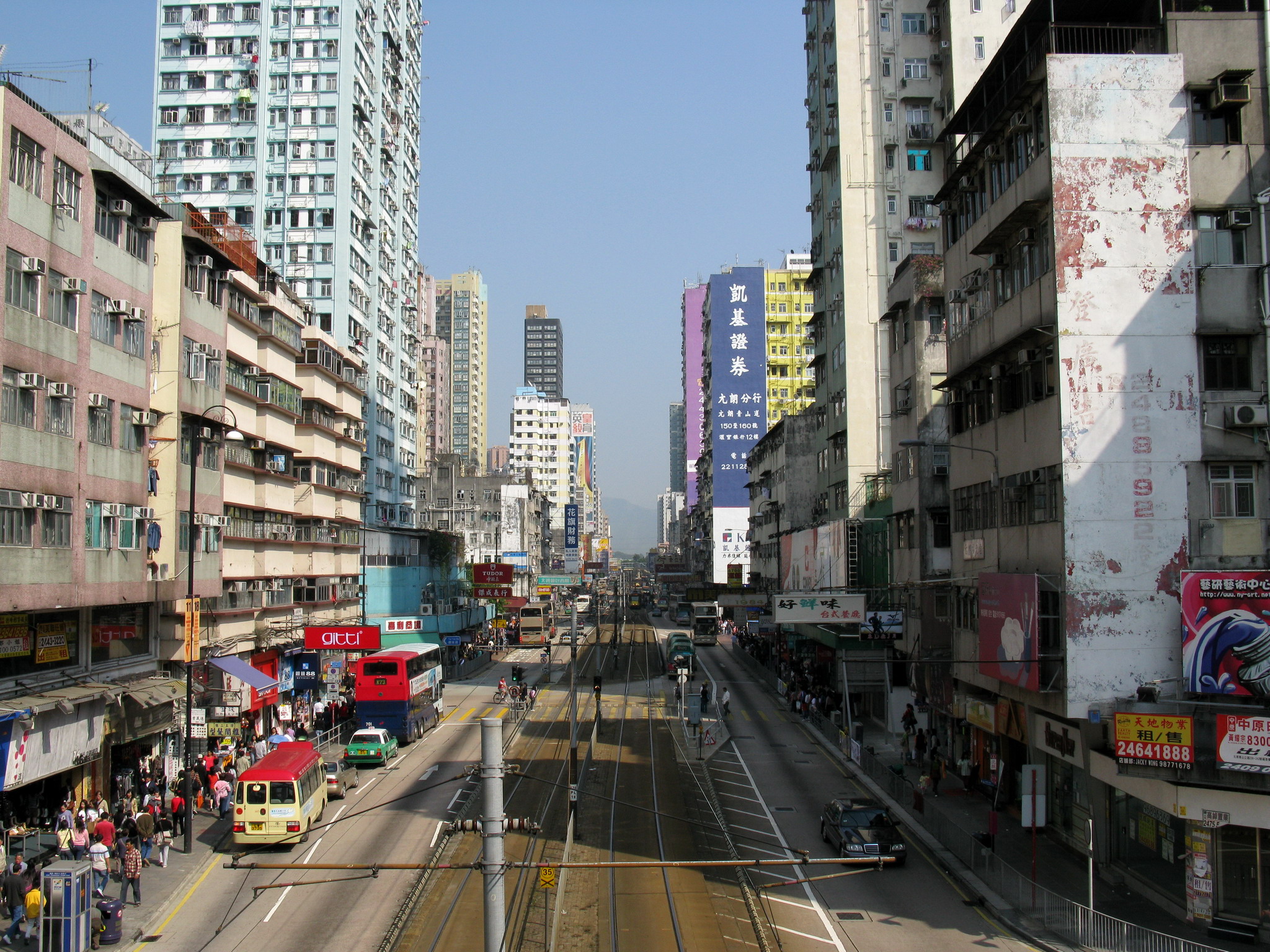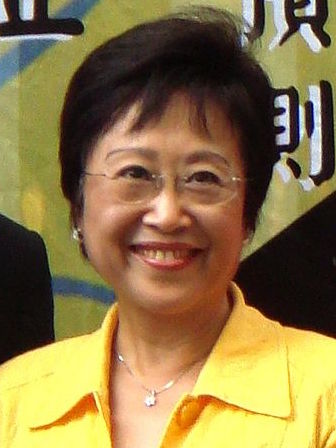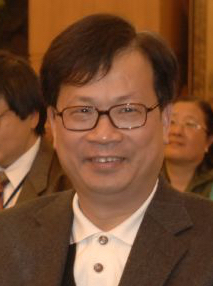|
Alvin Yeung
Alvin Yeung Ngok-kiu ( zh, c=楊岳橋; born 5 June 1981) is a Hong Kong barrister and politician. He was formerly the leader of the Civic Party and a member of the Legislative Council of Hong Kong, representing New Territories East after winning the 2016 by-election. On 11 November 2020, Yeung was disqualified from the Legislative Council, along with three other lawmakers of the pan-democratic camp, by the central government in Beijing on request of the Hong Kong government. A mass resignation of pan-democrats the same day left the Legislative Council without a substantial opposition. Background Yeung was born in Yuen Long, Hong Kong, in 1981 as the only child to a restaurant owner and a jewellery dealer. He and his parents immigrated to Canada in the early 1990s after the 1989 Tiananmen massacre. Yeung graduated from the University of Western Ontario with a degree in political science and obtained a master of laws in constitutional and administrative laws from Peking Uni ... [...More Info...] [...Related Items...] OR: [Wikipedia] [Google] [Baidu] |
Yang (surname)
Yang (; ) is the Transcription (linguistics), transcription of a Chinese family name. It is the list of common Chinese surnames#People's Republic, sixth most common surname in Mainland China. It is the 16th surname on the ''Hundred Family Surnames'' text. The Yang clan was founded by Boqiao, son of Duke Wu of Jin in the Spring and Autumn period of the Ji (Zhou dynasty ancestral surname), Ji (姬) surname, the surname of the royal family during the Zhou dynasty ) who was enfeoffed in the Yang (state), state of Yang. History The German sociologist Wolfram Eberhard calls Yang the "Monkey Clan", citing the totemistic myth recorded in the ''Soushenji'' and ''Fayuan Zhulin'' that the Yangs living in southwestern Shu (state), Shu (modern Sichuan) were descendants of monkeys. The ''Soushenji'' "reported that in the southwest of Shu there were monkey-like animals whose names were ''jiaguo'' (猳國), ''mahua'' (馬化), or ''Monkeys in Chinese culture#Jue and Juefu, jueyuan'' (玃猿). ... [...More Info...] [...Related Items...] OR: [Wikipedia] [Google] [Baidu] |
Yuen Long
Yuen Long is a town in the western New Territories, Hong Kong. To its west lie Hung Shui Kiu (), Tin Shui Wai, Lau Fau Shan and Ha Tsuen, to the south Shap Pat Heung and Tai Tong, to the east Au Tau and Kam Tin (), and to the north Nam Sang Wai. Name According to Gazetteer of Xin'an County (新安縣志) and other ancient maps, Yuen Long was first written as 圓蓢 (lit. Round Basin or Round lowland).Yuen Long Now & Then (n.d.), Hong Kong Public Library. Available at:https://www.hkpl.gov.hk/sc/common/attachments/hkcl/resources/resources_ml_yl.pdf Yuen Long refers to a large plain surrounded by a series of hills, starting from Oyster Hill (蠔殼山) in Ou Tau (凹頭) on the east and ending at Tai Tau Shan (大頭山) in Tuen Mun on the west, which is like a basin. Yuen Long is in the Shan Pui River Basin (山貝河流域). From the literal meaning, it can be inferred that Yuen Long was a swampy lowland with abundant water resources in ancient times. The Cantonese name Yu ... [...More Info...] [...Related Items...] OR: [Wikipedia] [Google] [Baidu] |
Ronny Tong Ka-wah
Ronny Tong Ka-wah (; born 28 August 1950) is a senior counsel and politician in Hong Kong. He is a current non-official member of the Executive Council of Hong Kong. He co-founded the Civic Party and was a member of the Legislative Council of Hong Kong, representing the New Territories East constituency from 2004 until he quit the party and resigned from the legislature on 22 June 2015, following the historic vote on Hong Kong electoral reform a few days earlier, having switched his political alignment from pro-democracy to pro-Beijing Hong Kong political group Path of Democracy, of which he is currently the convener. Education and legal career Tong was born in Hong Kong in 1950. His ancestral hometown is Xinhui, Guangdong province. He attended Queen's College, Hong Kong and studied law at the University of Hong Kong, where he graduated top of his class and with first-class honours. He then further received his Bachelor of Civil Law degree from St Edmund Hall, Oxford. He wa ... [...More Info...] [...Related Items...] OR: [Wikipedia] [Google] [Baidu] |
2012 Hong Kong Legislative Election
The 2012 Hong Kong Legislative Council election was held on 9 September 2012 for the 5th Legislative Council of Hong Kong, Legislative Council (LegCo) since the establishment of the Hong Kong Special Administrative Region. The election was for the new total of 70 seats in LegCo, ten more than previously, with 35 members elected in geographical constituencies through direct elections, and 35 members in functional constituency (Hong Kong), functional constituencies. Under Consultation Document on the Methods for Selecting the Chief Executive and for Forming the LegCo in 2012, new arrangements agreed in a contentious LegCo vote in 2010, five District Council (Second) functional constituency seats each represent all 18 District Councils of Hong Kong voted for by all resident voters in Hong Kong (who did not have a vote in any other functional constituency), effectively increasing the number of seats elected with universal suffrage to 40. The pro-Beijing camp scored a major success, ... [...More Info...] [...Related Items...] OR: [Wikipedia] [Google] [Baidu] |
2011 Hong Kong Election Committee Subsector Election
The 2011 Election Committee subsector elections took place between 7:30 am and 10:30 pm on 11 December 2011. The Election Committee sub-sector elections are a part of the contemporary political process of Hong Kong. The election's purpose is to decide the 1,044 members of the Election Committee of Hong Kong. The resulting Election Committee is then responsible for electing the Chief Executive of Hong Kong Special Administrative Region (SAR) in the 2012 Election. Background The breakthrough of the electoral reform in 2010 changed the membership of the Election Committee for the first time which expanded the size of the Election Committee from 800 members to 1,200 members. Each sector were allocated 100 more seats proportionally and the 10 Special Members were elected to fill the vacancy of the 10 new ex officio members Legislative Council which was also expanded from 60 to 70 seats in the electoral reform but was to be elected in the following September election. The ... [...More Info...] [...Related Items...] OR: [Wikipedia] [Google] [Baidu] |
Election Committee
The Election Committee is the electoral college in Hong Kong that selects the Chief Executive (CE) and, since 2021, elects 40 of the 90 members of the Legislative Council. Established by Annex I of the Basic Law of Hong Kong which states that "the Chief Executive shall be elected by a broadly representative Election Committee in accordance with this Law and appointed by the Central People's Government (State Council)." It is formed and performs its selection function once every five years, even in the event of a CE not completing their term. The membership of the Election Committee was expanded to 1,500 under the massive overhaul of the electoral system in 2021. The Election Committee has been criticised for its "small-circle" electoral basis and its composition favouring pro-Beijing and business interests. History The Sino-British Joint Declaration of 1984 provides that the Chief Executive "shall be selected by elections or through consultations held locally and be ap ... [...More Info...] [...Related Items...] OR: [Wikipedia] [Google] [Baidu] |
Tai Po Hui (constituency)
Tai Po Hui is one of the 19 constituencies in the Tai Po District. The constituency returns one district councillor to the Tai Po District Council, with an election every four years. The seat has been currently held by Lam Ming-yat of the TPDA. Tai Po Hui constituency is loosely based on Tai Po Market (Tai Po Hui) with estimated population of 19,451. Councillors represented Election results 2010s 2000s 1990s Notes References {{Authority control Tai Po Constituencies of Hong Kong Constituencies of Tai Po District Council 1994 establishments in Hong Kong Constituencies established in 1994 ... [...More Info...] [...Related Items...] OR: [Wikipedia] [Google] [Baidu] |
2011 Hong Kong Local Elections
The 2011 Hong Kong District Council elections were held on 6 November 2011. Elections were held to all 18 District Councils of Hong Kong, returning 412 members from directly elected constituencies, each selecting a council member. After the government's constitutional reform package was passed in 2010, five new seats in the Legislative Council would be created in which the candidates would be nominated by all District Councillors. The pro-Beijing camp continued its success in this election and controlled all 18 District Councils. The pro-Beijing flagship party Democratic Alliance for the Betterment and Progress of Hong Kong (DAB) remained the biggest winner by taking 136 seats, far ahead of the pan-democracy flagship party Democratic Party's 47 seats. The Democratic Party faced challenges from radical democratic party People Power which campaigned against the Democratic Party and Association for Democracy and People's Livelihood (ADPL) which supported the government's cons ... [...More Info...] [...Related Items...] OR: [Wikipedia] [Google] [Baidu] |
2004 Hong Kong Legislative Election
4 (four) is a number, numeral and digit. It is the natural number following 3 and preceding 5. It is a square number, the smallest semiprime and composite number, and is considered unlucky in many East Asian cultures. Evolution of the Hindu-Arabic digit Brahmic numerals represented 1, 2, and 3 with as many lines. 4 was simplified by joining its four lines into a cross that looks like the modern plus sign. The Shunga would add a horizontal line on top of the digit, and the Kshatrapa and Pallava evolved the digit to a point where the speed of writing was a secondary concern. The Arabs' 4 still had the early concept of the cross, but for the sake of efficiency, was made in one stroke by connecting the "western" end to the "northern" end; the "eastern" end was finished off with a curve. The Europeans dropped the finishing curve and gradually made the digit less cursive, ending up with a digit very close to the original Brahmin cross. While the shape of the character ... [...More Info...] [...Related Items...] OR: [Wikipedia] [Google] [Baidu] |
Alan Leong Kah-kit
Alan Leong Kah-kit ( zh, c=梁家傑; born 22 February 1958), SC is a former member of the Hong Kong Legislative Council, representing the Kowloon East geographical constituency and former chairman of the now-disbanded Civic Party. He was also vice-chairperson of the Independent Police Complaints Council. Early career Leong graduated with an LLB from the University of Hong Kong and an LLM from Hughes Hall, University of Cambridge. He was chairman of Hong Kong Bar Association from 2001 to 2003. Political career As chairperson of Hong Kong Bar Association, he mobilised many barristers to participate in the July 1 protests. He won a seat in the Legislative Council in the 2004 election. In January 2011, Leong was elected the second leader of the Civic Party, replacing Audrey Eu. 2007 Chief Executive election Leong was nominated by the Civic Party as its party candidate for the Chief Executive election in 2007. He was also supported by the pan-democrats, including the Demo ... [...More Info...] [...Related Items...] OR: [Wikipedia] [Google] [Baidu] |
2003 July 1 March
3 (three) is a number, numeral and digit. It is the natural number following 2 and preceding 4, and is the smallest odd prime number and the only prime preceding a square number. It has religious and cultural significance in many societies. Evolution of the Arabic digit The use of three lines to denote the number 3 occurred in many writing systems, including some (like Roman and Chinese numerals) that are still in use. That was also the original representation of 3 in the Brahmic (Indian) numerical notation, its earliest forms aligned vertically. However, during the Gupta Empire the sign was modified by the addition of a curve on each line. The Nāgarī script rotated the lines clockwise, so they appeared horizontally, and ended each line with a short downward stroke on the right. In cursive script, the three strokes were eventually connected to form a glyph resembling a with an additional stroke at the bottom: ३. The Indian digits spread to the Caliphate in the 9th ... [...More Info...] [...Related Items...] OR: [Wikipedia] [Google] [Baidu] |
Master Of Laws
A Master of Laws (M.L. or LL.M.; Latin: ' or ') is a postgraduate academic degree, pursued by those either holding an undergraduate academic law degree, a professional law degree, or an undergraduate degree in another subject. In many jurisdictions, the LL.M. is an advanced professional degree for those already admitted to legal practice. Definition To become a lawyer and practice law in most jurisdictions, a person must first obtain a law degree. In most common law countries, a Bachelor of Laws (LL.B.) is required. In the United States, a bachelor's degree followed by the Juris Doctor (J.D.), a graduate school degree, and passing an additional set of examinations (the Bar exam) is typically required to practice law. The LL.M. program is an advanced postgraduate law program. In Canada, an LL.B is required to enter an LL.M program; in the United States and Australia, a J.D. is required. Specialized LL.M. programs have been introduced in many European countries. An LL.M. d ... [...More Info...] [...Related Items...] OR: [Wikipedia] [Google] [Baidu] |





